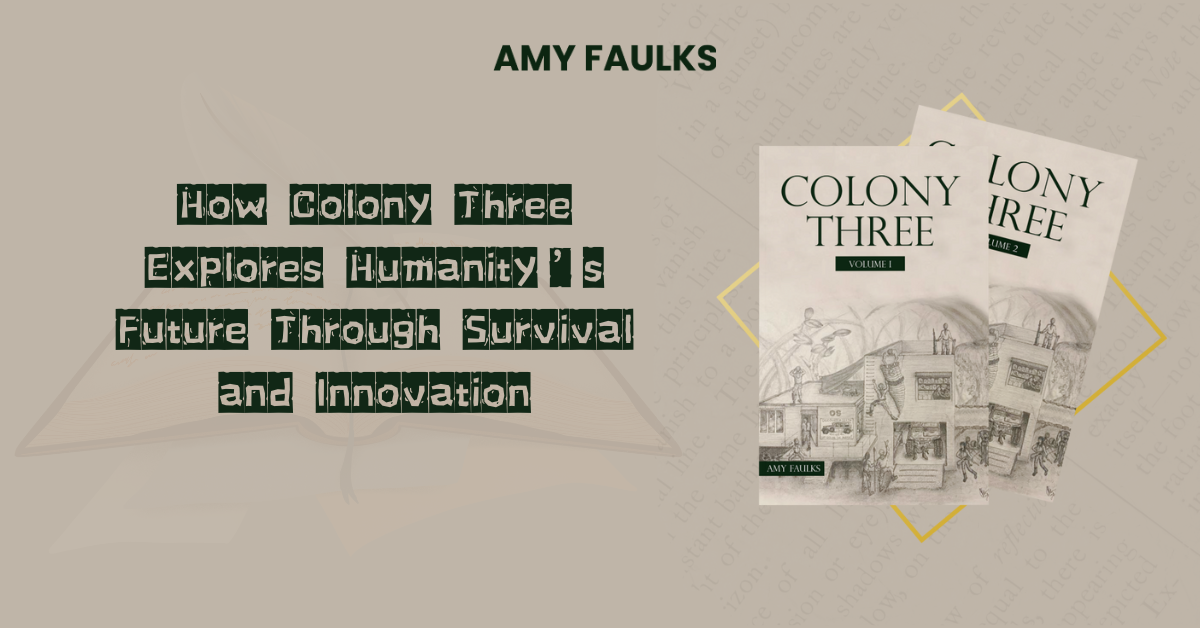Amy Faulks’ Colony Three is more than just a science fiction adventure; it’s a profound exploration of humanity’s potential to adapt, innovate, and thrive in the face of extraordinary challenges. Set on the alien planet Arcadia, the novel delves into the intricacies of survival while addressing critical themes about the future of humanity.
Survival Against All Odds
The story begins with a catastrophic crash landing on Arcadia, leaving the colonists stranded in an unfamiliar and hostile environment. The characters are thrust into a fight for survival, where every decision can mean life or death.
Faulks skillfully portrays the resilience of the human spirit through her characters. From Leslie, a medic who uses her extraordinary abilities to save lives, to Kayne, a scientist whose ingenuity helps the group adapt, the novel emphasizes the importance of resourcefulness and collaboration.
The colonists face numerous challenges, from alien creatures to environmental hazards, to internal conflicts. These elements reflect the broader theme of humanity’s capacity to endure and overcome seemingly insurmountable obstacles.
The Role of Innovation in Survival
Colony Three shines a spotlight on innovation as a cornerstone of survival. The colonists must rely on technology, science, and creativity to navigate their new reality. From analyzing Arcadia’s flora and fauna to repairing damaged equipment, the characters constantly push the boundaries of their knowledge.
Kayne’s scientific contributions, Tatyana’s technical expertise, and Kirill’s piloting skills highlight the diverse talents needed to establish a foothold on the alien planet. These efforts underscore the idea that progress and survival go hand in hand, emphasizing humanity’s potential to innovate under pressure.
Ethical Questions About Humanity’s Future
While focusing on survival, Colony Three also raises profound ethical questions. What are the moral implications of colonizing a new world? How should resources be allocated, and who has the right to make these decisions? Faulks deftly intertwines these issues with the story’s action, prompting readers to reflect on the responsibilities that come with exploring new frontiers.
The novel’s portrayal of conflicts between factions, such as Iron Sun and Colony Three’s administrators, adds another layer of complexity. It illustrates how power dynamics and ethical dilemmas can shape humanity’s future in uncharted territories.
A Vision of Hope and Resilience
Amidst the chaos and danger, Colony Three delivers a message of hope. The novel shows that humanity has the potential to not only survive but also thrive in new environments. Through collaboration, ingenuity, and determination, the colonists begin to carve out a future on Arcadia.
Faulks’ narrative reminds readers that even in the most challenging circumstances, there is room for growth, innovation, and the possibility of a better tomorrow.
Conclusion
Colony Three by Amy Faulks is a compelling exploration of humanity’s resilience and ingenuity. By weaving themes of survival, innovation, and ethical dilemmas into a gripping story, Faulks invites readers to imagine what humanity’s future might look like in the vast expanse of space.
Whether you’re a fan of science fiction or simply curious about the challenges of exploring new frontiers, Colony Three offers an engaging and thought-provoking journey. It’s a testament to the human spirit’s ability to adapt and thrive, even in the face of the unknown.

